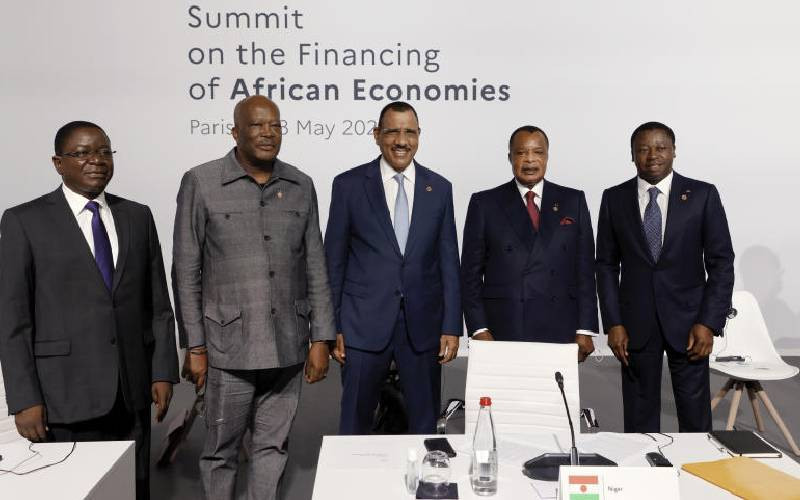When Chad's Prime Minister Albert Pahimi, Burkina Faso's President Christian Kabore, Niger's President Mohamed Bazoum, President of the Republic of Congo Denis Sassou Nguesso, and Togo's President Faure Gnassingbe, posed before the opening session at the Summit on the Financing of African Economies Tuesday, May 18, 2021, in Paris. [AP Photo]
